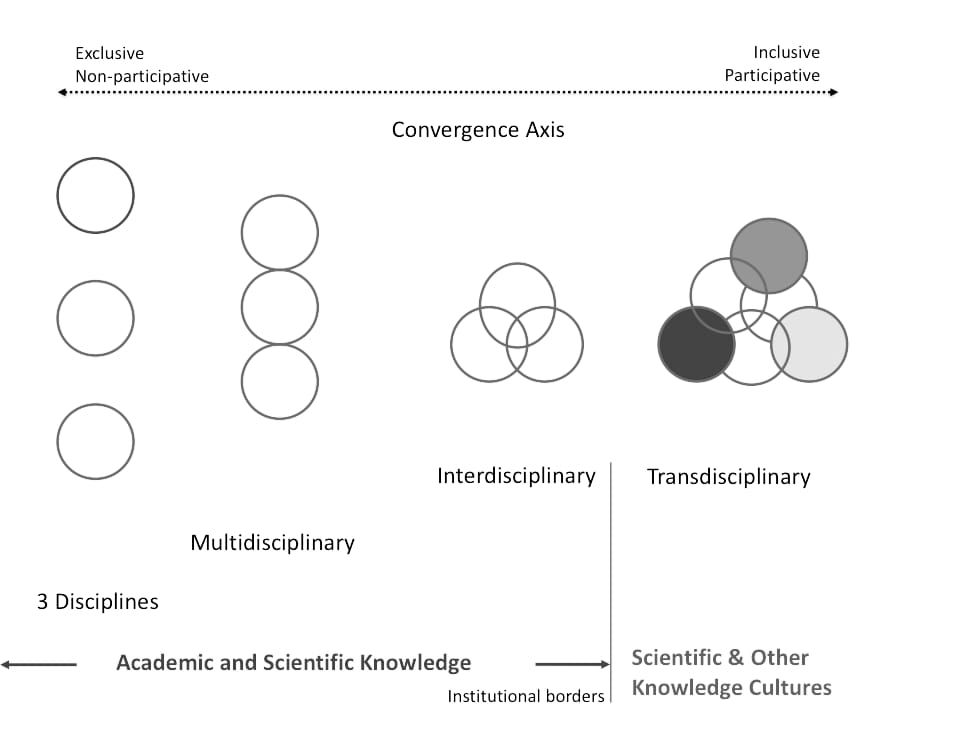MULTI- INTER- AND TRANSDISCIPLINARY EDUCATION
—“I would have never expected that a 30 min. flipchart session could be so helpful in clarifying the core aspects of a blended model for multidisciplinary integration in higher education! The UCCRN_edu [Erasmus +] project will benefit a lot from such valuable advice.”
Dr. Mattia Leone, architect and associate professor, Department of Architecture (DiARC) University of Naples Federico II, Italy. Also co-director of the Urban Climate Change Research Network - European Hub (UCCRN) and Coordinator of the Erasmus+ UCCRN-EDU project.

Are you curious for more? Would you like to get in touch? Feel free to contact our lead directly for any questions or inquiries you may have. tikvah@studioblended.com +31 6 42 47 29 69
SYNOPSIS
(Follows)VIEW PDF (OPEN SOURCE)
(PDF image and link follows soon 2026)© Copyright Tikvah Breimer, STUDIOBLENDED
AUTHOR BIOGRAPHY
See Tikvah Breimer (MSc MAEd MSc)
KEYWORDS
Higher Education, Constructive Alignment, Modular, Technical, Educational Design.
LICENCE
This work is licenced under the Creative Commons Attribution 4.0 International Licence.
HOW TO CITE
Breimer, T. (2026) Multi- inter- and transdisciplinary higher education. STUDIOBLENDED. Available: LINK (follows)
MULTI- INTER - AND TRANDSCIPLINARY EDUCATION

Image: Multidisciplinary, interdisciplinary and transdisciplinary explained, with the latter being visualised as co-creation of knowledge with non scientific knowledge cultures. Reproduced by permission of Roderick J. Lawrence. For reference see bottom of the page.
OUR FINITE SET OF DESIGN ANGLES
Technical resilienceBig ideas
Paradigm shifts/decade strong
Simplicity and decluttering
Human resilience
Modular
Innovative and deep pedagogy
Assesment / evaluation
Time dimension
Evidence-based design
Financial health and resilience by (re)design
Multi- Inter- and transdisciplinary
Flexibilisation and personalisation
Blended
REFERENCES
Fam, D., Leimbach, T., Kelly, S., Hitchens, L., Callen, M. (2018). Meta-considerations for Planning, Introducing and Standardising Inter and Transdisciplinary Learning in Higher Degree Institutions. In: Fam, D., Neuhauser, L., Gibbs, P. (eds) Transdisciplinary Theory, Practice and Education. Springer, Cham. https://doi.org/10.1007/978-3-319-93743-4_7Loorbach, D., Wittmayer, J. (2025) Transformative Tensions in the Ivory Tower. Minerva. https://doi.org/10.1007/s11024-025-09607-w
Roderick J.L. (2021) Creating Built Environments. New York, Routledge.
Resilient education that stands the test of time - by design.
Prefer to have direct contact?
Feel free to contact us:
Tikvah Breimer (MSc MAEd MSc)
Independent senior advisor, teacher trainer, director.
tikvah@studioblended.com
+31 6 42 47 29 69
STUDIOBLENDED Non Profit Foundation
Registration Chamber of Commerce
KvK-number 86242598 (Dutch)
VAT identification number
NL 86 39 07 29 5 B01
Bankaccount
NL40 INGB 0709 6156 04
SWIFT/BIC: INGBNL2A
StudioBlended Foundation
Feel free to contact us:
Tikvah Breimer (MSc MAEd MSc)
Independent senior advisor, teacher trainer, director.
tikvah@studioblended.com
+31 6 42 47 29 69
STUDIOBLENDED Non Profit Foundation
Registration Chamber of Commerce
KvK-number 86242598 (Dutch)
VAT identification number
NL 86 39 07 29 5 B01
Bankaccount
NL40 INGB 0709 6156 04
SWIFT/BIC: INGBNL2A
StudioBlended Foundation
